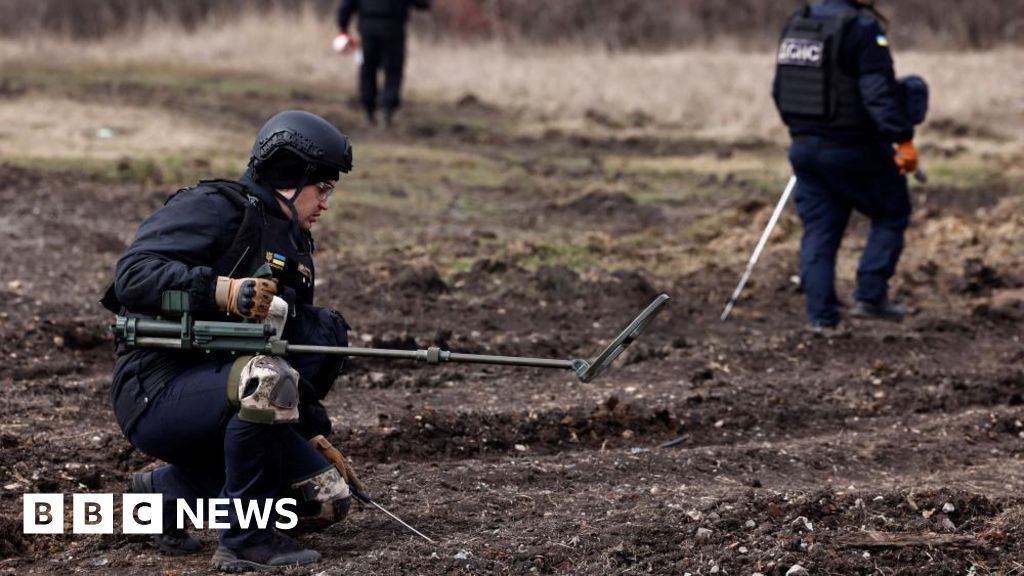Ukraine-Russia war: US criticised for sending landmines to Kyiv

Ms Wareham’s stance was echoed by the International Campaign to Ban Landmines (ICBL), which condemned the US decision “in the strongest possible terms”.
“These horrific, indiscriminate weapons were banned by the 1997 Mine Ban Treaty given the devastating impact they have on civilians’ lives and livelihoods,” the statement from the ICBL’s director, Tamar Gabelnick, added.
Under the treaty, “there are no circumstances under which Ukraine as a state party may acquire, stockpile or use them”, she added.
The use of landmines is not illegal under international law. But more than 160 nations have signed the Mine Ban Treaty which commits to banning the production, use and stockpiling of anti-personnel mines. Ukraine is a signatory to this treaty, external.
However, after Russia’s illegal occupation of Crimea in 2014, Ukraine informed fellow signatories that its application of the treaty in the occupied areas would be is “limited and is not guaranteed”.
Ms Wareham from Human Rights Watch added: “So much progress has been made over the past 25 years under the framework provided by the international treaty banning landmines. So it’s just inconceivable that the US would take this step.”
Anti-personnel landmines are explosives which are often concealed on the ground and designed to detonate when people step over or near them.
Washington has already been providing anti-tank mines to Ukraine, but the anti-personnel land mines – which can be rapidly deployed – are designed to blunt the advances of ground forces.
Human Rights Watch previously said Ukraine had repeatedly, external used Soviet-made rocket-launched anti-personnel mines on and around the city of Izyum in the summer of 2022, when it was occupied by Russia.
Russian forces have been using landmines widely in Ukraine – since it launched its full-scale invasion in February 2022, Russia has deployed landmines to both defend their positions and slow down the Ukrainians.
One of campaigners’ main concerns in regards to landmines is the danger these weapons present to civilians, killing indiscriminately as they are buried underground or scattered on the surface.
Another issue is the process of demining once a conflict is over, and clearing land that has been mined can take a long period of time. The process is also costly, with the World Bank reporting last year that demining Ukraine would cost $37.4bn (£29.6bn).
Austin said the US had sought reassurances of how the mines would be used.
Washington expects that the mines – that officials say will be delivered soon – would be used on Ukraine’s territory, but away from densely-populated areas.
Mr Austin said the US devices would be safer to use than the ones Ukraine were developing themselves, as the US mines are what it calls “non-persistent”, meaning that after some days they lose charge and can no longer detonate.
Related
What’s at stake for American culture with Trump’s Kennedy Center…
In her two decades as a human rights lawyer, working on issues in more than 25 countries, Hadar Harris says she is alarmed by what she's witnessing on U.S. soil
Denmark lost 52 soldiers fighting alongside the US. Now it…
Nick BeakeEurope correspondentBBCAll his adult life, Colonel Soren Knudsen stepped forward when his country called. And when its allies did.He fought alongside
As Trump upends foreign policy, Berkeley scholar sees irreparable damage…
Last week’s Oval Office blowup with Ukrainian President Volodymyr Zelensky exemplified what many foreign policy experts have long feared: that th
Trump creates a task force for the North American 2026…
President Donald Trump creates a task force to prepare for the 2026 W











